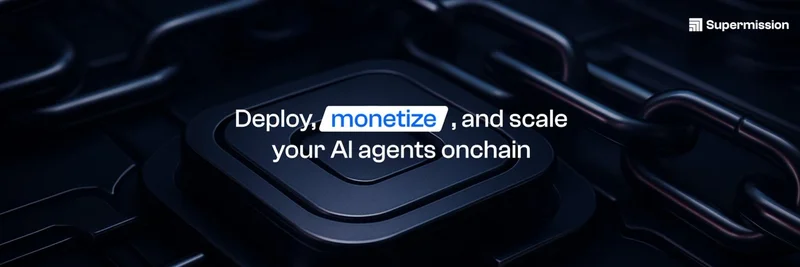Texas has made headlines by becoming the first U.S. state to establish a strategic Bitcoin reserve, a move that signals a significant shift in how states view digital assets. This development was recently discussed on the Unchained podcast, hosted by Laura Shin, with guest Lee Bratcher, President and founder of the Texas Blockchain Council. Let's dive into the details of this landmark decision and what it means for the future of Bitcoin and blockchain technology.
Texas's Strategic Bitcoin Reserve: A Game-Changer
The Unchained podcast episode, aired on June 27, 2025, delves into the intricacies of how Texas came to pass the law for a $10 million strategic Bitcoin reserve. Lee Bratcher, who played a pivotal role in advocating for this legislation, shared the journey from inception to fruition. The idea initially stemmed from conversations with various stakeholders, including Chairman Giovanni Capriglione, who chairs the newly formed Digital and Emerging Technology Committee in the Texas House of Representatives.
Bratcher explained that the concept was first conceptualized around 2022, with initial plans to form a charitable trust to hold Bitcoin donations. However, the political landscape shifted, especially after the 2024 elections, providing a favorable environment for such legislation. The bill, known as Senate Bill 21 (SB21), was signed into law by Governor Greg Abbott, marking Texas as a pioneer in state-level Bitcoin adoption.
Why $10 Million? The Rationale Behind the Figure
One of the key questions addressed in the podcast was the rationale behind the $10 million allocation for the Bitcoin reserve. Bratcher clarified that this amount was chosen as a conservative yet meaningful figure. It allows the state to understand the technology, particularly from custody and compliance perspectives, without significantly impacting the state's substantial $250 billion annual budget. This allocation represents just 0.0004% of the budget, making it a negligible risk while still being substantial enough to make an impact.
The decision to purchase Bitcoin rather than rely on donations was also a strategic one. Lawmakers were cautious about potential conflicts of interest with donations, leading to the removal of that component from the bill. Instead, the state will use public funds, ensuring transparency and accountability.
Custody Challenges and Future Plans
Another critical aspect discussed was how Texas plans to custody its Bitcoin. The bill provides flexibility for the state comptroller to decide on the best approach, whether through a qualified custodian, multi-institutional custody, or multisignature setups. Bratcher mentioned that several well-known companies, such as Coinbase, Anchorage, Kraken, and Blockchain.com, are vying for this role, indicating a competitive landscape.
The podcast also touched on the possibility of using derivatives for Bitcoin exposure, although Bratcher emphasized that the primary intent is to hold the actual asset. This approach aligns with the broader goal of treating Bitcoin as a long-term strategic asset, similar to how other states and countries are beginning to view it.
Bipartisan Support and Demographic Insights
Interestingly, the legislation received widespread bipartisan support, with 26 out of 31 state senators and about 100 out of 150 state house members voting in favor. This support cuts across party lines, reflecting a growing recognition of Bitcoin's potential. Bratcher highlighted a survey conducted a couple of years ago, which showed that about half of Texans under 30 own some form of digital asset, compared to only 6% of those over 70. This age demographic plays a significant role in the acceptance and understanding of Bitcoin.
The podcast also explored why Bitcoin isn't as partisan an issue in Texas as it might be elsewhere. Bratcher attributed this to the state's focus on innovation and business, as well as the collaborative nature of state legislatures compared to the federal level. The presence of younger legislators from both parties who understand digital assets further facilitated this bipartisan support.
Lee Bratcher's Journey into Bitcoin
Bratcher's personal journey into Bitcoin and blockchain technology adds another layer of depth to the discussion. As a former political science professor and Army Reserve officer, he became interested in Bitcoin around 2015 while studying property rights at the Army War College. His research into how blockchain could enhance property rights, particularly in the developing world, led him to advocate for its adoption in Texas.
Implications for Other States and the Future
The conversation also looked ahead to what this means for other states and the broader landscape of Bitcoin adoption. Bratcher mentioned that states like New Hampshire and Arizona have made similar moves, although Texas is the first to commit public funds to a standalone Bitcoin reserve. He expressed optimism about the Lummis-Gillibrand bill at the federal level, which could see the U.S. government investing in Bitcoin, potentially through innovative financial instruments like Bitcoin bonds.
For states considering similar actions, Bratcher advised that only those with budget surpluses, like Texas, are likely to be in a position to do so. He also highlighted the importance of education and advocacy in pushing such legislation forward.
Conclusion
Texas's decision to establish a strategic Bitcoin reserve is a landmark moment in the evolution of digital assets within the U.S. The Unchained podcast episode with Lee Bratcher provides valuable insights into the motivations, challenges, and future implications of this move. As more states and countries recognize the potential of Bitcoin, Texas's pioneering effort could serve as a model for others to follow.
For those interested in the intersection of blockchain technology and state policy, this discussion offers a comprehensive look at how Texas is leading the way. Stay tuned to Meme Insider for more updates on the latest developments in the world of cryptocurrencies and blockchain technology.




